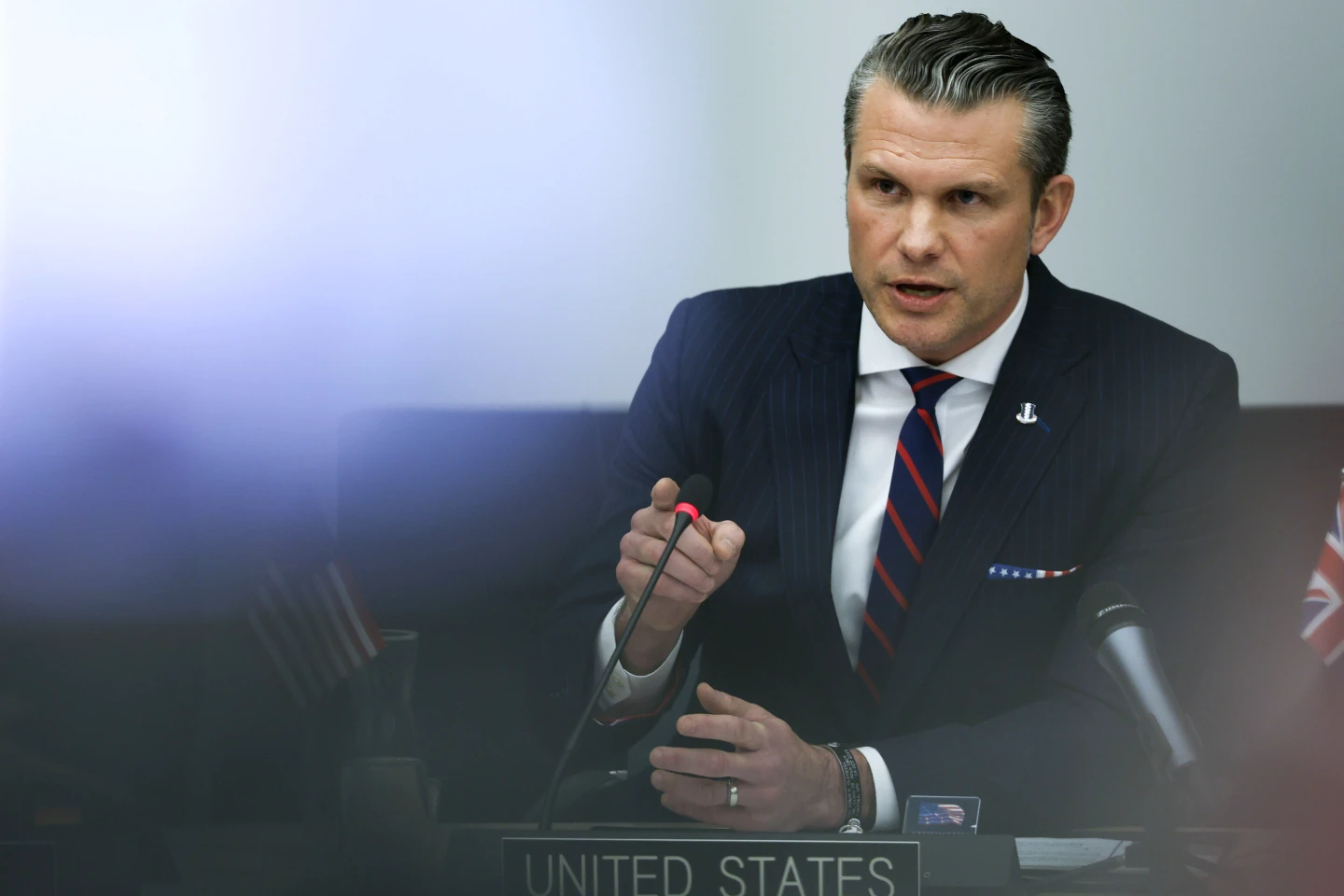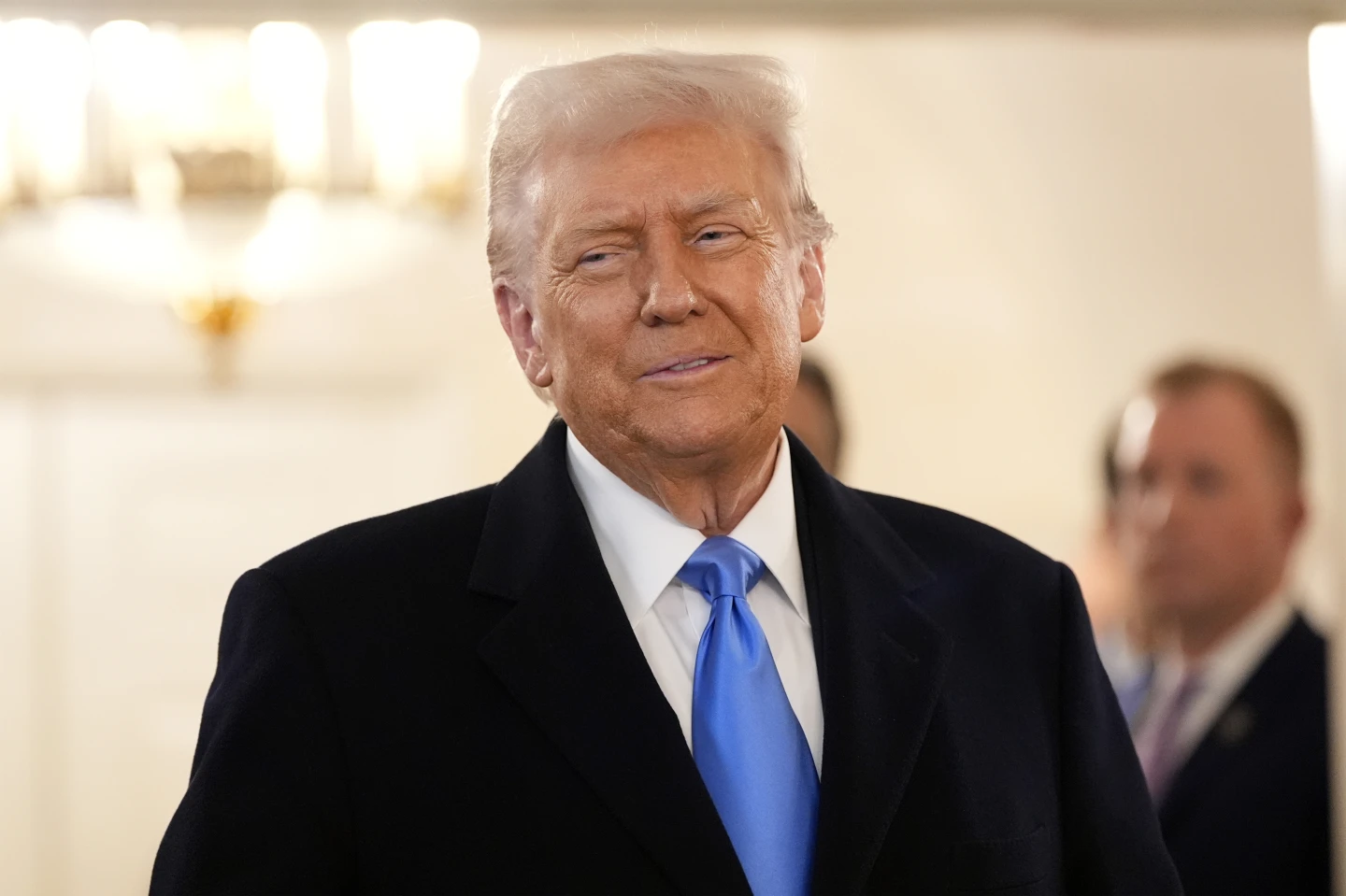The Current State of the Gaza Conflict: Ceasefire, Humanitarian Crisis, and Political Tensions
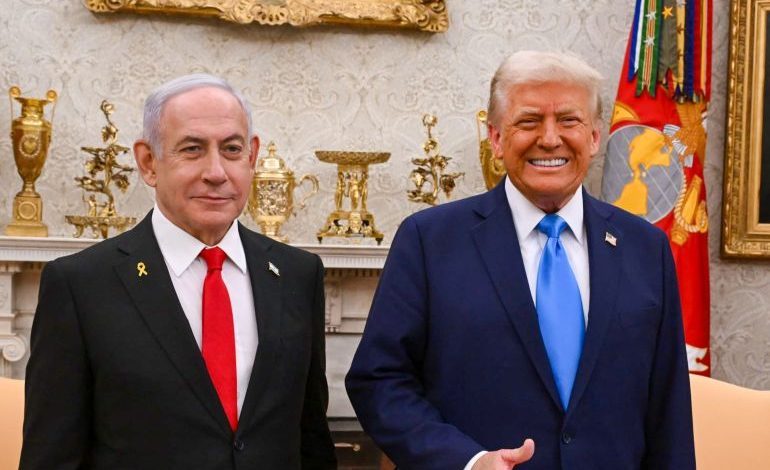
The Gaza conflict remains a significant and ongoing crisis, despite a ceasefire agreement that came into effect on January 19th, 2025.
This agreement has brought some respite, but it is under intense pressure as both sides—Israel and Hamas—remain at odds over the broader issue of peace and territorial control.
To get an overview of the current state of affairs in Gaza and the West Bank, key developments since the ceasefire, and the complex political challenges ahead, Wyoming Star contacted David Mednicoff, an Associate Professor of Middle Eastern Studies and Public Policy at the University of Massachusetts, Amherst.

Wyoming Star: How would you assess the current situation in Gaza and the West Bank? What key developments have occurred after the Gaza ceasefire came into effect on January 19th?
Prof. Mednicoff: The most important development is that Israeli hostages have been released by Hamas, and Palestinian prisoners have been released by Israel. Also critical is that many Palestinians have returned to the areas they had lived in, even if most of their homes and neighborhoods have been destroyed. It is also significant that the first stage of the ceasefire has largely held, although it is under major tension now.
Wyoming Star: What are the main challenges in maintaining a long-lasting peace agreement, and how do both Israel and Hamas view this ceasefire?
Prof. Mednicoff: A lasting cease-fire faces the obstacles that the current agreement was negotiated in stages deliberately so that the major parties could back out if they were not satisfied. A peace agreement is an even more ambitious and difficult undertaking.
The biggest challenge, which has been true for a long time, is that neither Hamas nor the Israeli government wishes for long-lasting peace. This Israeli government has largely benefited from the war that Hamas started on October 7th 2023, while Hamas’ basic justification to organize and govern as they do is to confront and delegitimize Israel.
The current ceasefire nonetheless serves both political groups’ interests. For the Israeli government, it lessens international pressures around the extent of the military violence in Gaza and strong domestic pressures around the hostages. For Hamas, it gives the militant organization some chance to regroup and survive.
Wyoming Star: In light of the ongoing ceasefire, what are the immediate humanitarian concerns for Gaza, and how do international organizations like the UN and Red Cross plan to address the aid bottleneck? What can be done to ensure that aid flows into Gaza more effectively, especially amidst political and logistical roadblocks?
Prof. Mednicoff: The devastation in Gaza and the human emergency are overwhelming, heartbreaking, and urgent. Nearly 50,000 Gazan Palestinians have already died, and many thousands more are in poor health and have low access to essential health care services and food. The ceasefire has helped open up land crossings from Israel and Egypt into Gaza. Since the Israeli government ultimately controls what can get into Gaza, the continuity of the ceasefire and international pressure and donations around aid are the main things that can help this dire situation.

Wyoming Star: During his recent meeting with Israeli Prime Minister Benjamin Netanyahu, President Trump made a series of comments regarding the possible US direct involvement in solving the Gaza question. How do his comments reflect broader shifts in US foreign policy toward the region?
Prof. Mednicoff: It is too early to say whether President Trump’s remarks about removing Palestinians from Gaza will metastasize into a new US policy supporting the ethnic cleansing of an entire population and an illegal US occupation of Gaza. Many members of the current Israeli government, but not necessarily most Israelis, would prefer depopulating Palestinians from Gaza permanently, which is strongly against international law and the policy positions of the vast majority of countries in the world, including every Arab society. While some in the Biden administration might have sympathized with Israeli government concerns about a rebuilt Gaza with Hamas still dominant, no US official under Biden would have called for the permanent population transfer of Gaza’s residents. Whatever Trump actually meant, his remarks signal, along with the dismantling of USAID, a shift in US foreign policy away from offering American help or concern for vulnerable people all over the world who have been devastated by war, famine, or other circumstances beyond their control.
Since it doesn’t seem possible (and, for many Americans, desirable) to physically shut out the rest of the world, I fear that the US’ disregarding the suffering of many millions of people outside of our borders will likely rebound negatively.
Wyoming Star: How do you interpret the response from key US figures like Marco Rubio and other Republican politicians to Trump’s stance on Gaza?
Prof. Mednicoff: Trump’s stance on Gaza is strongly against international law and basic morality and flouts the strong views of most people in the world, including Palestinians. Naturally, other members of his administration would try to pretend that what the President said is somehow consistent with a more reasonable policy position that does not call for exiling people permanently from their home territory after barely surviving over a year of terrible war. So ethnic cleansing, which Trump’s remarks suggest, gets rationalized instead by some of his allies as temporary (but still forced) relocation, at direct odds with the President’s words.
Wyoming Star: Do you find Trump’s proposals realistic given the history of US involvement in the Middle East, Trump’s own “America First” sentiment, and the possible opposition from the Arab countries?
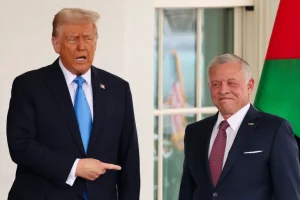
Prof. Mednicoff: It is very unlikely that any Arab or other relevant country will go along with the forced transfer of the entire population of Gaza, and Arab countries do not want to find space for millions of Palestinians. The cost of this idea for r
egional stability and the survival of long-term US allies in the Middle East, like the King of Jordan¹, seems higher than any monetary incentive the President could possibly offer from Americans’ tax dollars. And I assume that most Americans would also oppose their hard-earned tax dollars going to what clearly, in international law, would be the crime of ethnic cleansing in order to establish a new outlet for rich American real estate developers to profit further in Gaza.
Wyoming Star: How do you think Trump’s legacy will influence future US administration approaches to the Israel-Palestine issue? Will his statements and actions have a lasting effect?
Prof. Mednicoff: Trump is empowering the most right-wing, anti-democratic, anti-Palestinian racist elements of Israeli government and society to continue to try to make the West Bank and Gaza uninha
bitable for Palestinians. These particular right-wing Israelis believe that it is impossible for Palestinian Arabs, and Israeli Jews to live side by side and, in some cases, that the Bible gives them the right to dispossess non-Jews. They feel justified to do whatever it takes to push out Palestinians. But international law and global opinion are quite clear that lands occupied through the result of a war, such as Gaza and the West Bank, are not allowed to be added to the permanent territory of an occupying power. To be fair, American policy for decades has done little to deter ultranationalist right-wing Israelis.
President Trump is accelerating a trend that has been growing for a long time for a growing, but still non-majority, group of right-wing Israeli leaders and activists to demonize Palestinians, and dispossess them of their homes.
Wyoming Star: Do you think that the “two-state solution” remains viable, or is the annexation of the Palestinian territories almost inevitable?
Prof. Mednicoff: The two-state solution remains the only solution to the Israel-Palestine dispute that enjoys broad acceptance, including large portions of the Israeli and Palestinian populations. President Trump could actually use his flair for the dramatic and unpredictable to push this solution forward, rather than to defer to what very right-wing Israeli sources may have whispered into his ear. The US could work with Arab countries and even Iran to develop a very detailed and clear blueprint to rebuild Gaza and provide a state for Palestinians on their own territory, in exchange for a “grand bargain” deal for Israel that includes full regional diplomatic normalization and ironclad security arrangements/guarantees. If this deal were negotiated and then brought directly by referendum to the full Israeli and Palestinian populations, both a two-state solution and peace in the region might be achievable. There are many obstacles to making this work, but Iran and its proxies’ weakness creates a favorable environment for success. And October 7th made it clear that the Palestinian issue cannot be repressed militarily forever, and this will still be true if Palestinians are forced to move out of their homes to countries that don’t want them in gross violation of international law and basic decency.
Wyoming Star: What further goal does Israel pursue in its continued operations in Lebanon and Syria with Hezbollah largely defeated and Assad’s regime toppled? How do these campaigns affect the Palestinian front?
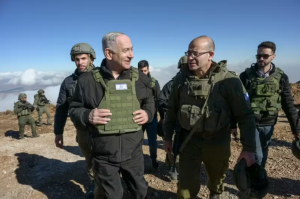
Prof. Mednicoff: It’s hard to say, but, for now, Israel doesn’t seem very worried about Lebanon and Syria. I think that the best chance Israel has to stabilize the situation with those new governments would be to move towards a regional peace as I have outlined, rather than continuing to flex its military muscles.
Wyoming Star: What role do international actors such as the European Union, Russia, and the UN play in facilitating or hindering the peace process? Are there any developments in international diplomacy that could tip the balance toward lasting peace?
Prof. Mednicoff:
Russia is too busy in Ukraine to do much in the Middle East, although it can always undermine and threaten European interests. With the US seeming to lurch into a less engaged role in the world, other than supporting more right-wing governments and their interests, Europe and the UN will likely assert themselves more as advocates of the post-WWII international order.
I think some of President Trump’s instincts around helping the powerful at the expense of the powerless will lead towards unjust and ineffective policies in the Middle East, but his other instincts around making large deals and trying novel ideas could lead his administration to pursue the “grand bargain” with two-state solution I’ve outlined above, which would being enormous benefits to the Middle East and the world, and facilitate the development of a prosperous Gaza after all.
- On February 11th, President Trump met with Jordan’s King Abdullah II at the White House. During the meeting, Trump reiterated his proposal for the United States to assume control over Gaza, describing it as a “big real estate site.” He suggested that relocating Palestinians from Gaza to Egypt and Jordan could be a solution, a stance that has been met with criticism and concerns about its feasibility and adherence to international law. As reported by Democracy Now!

